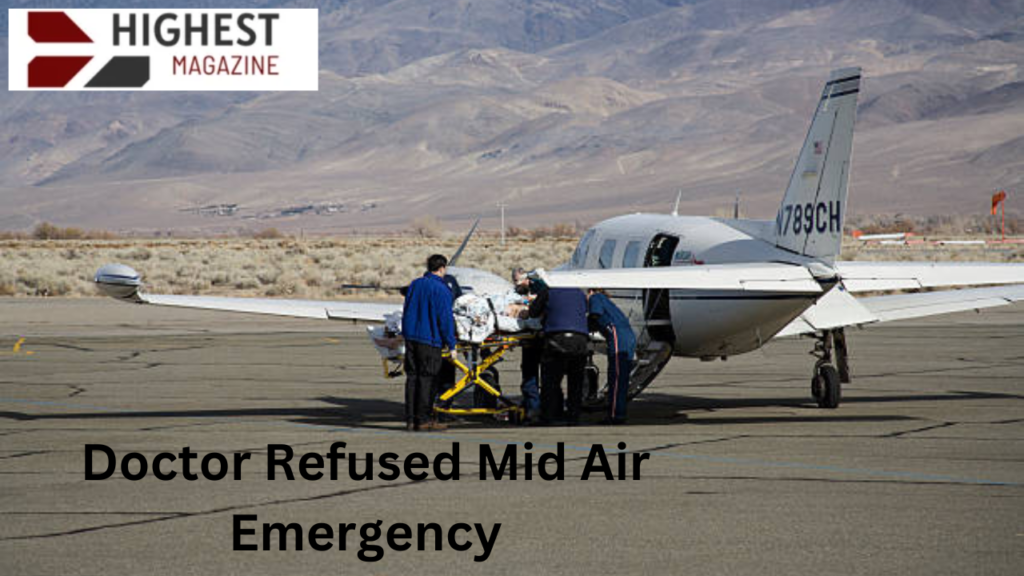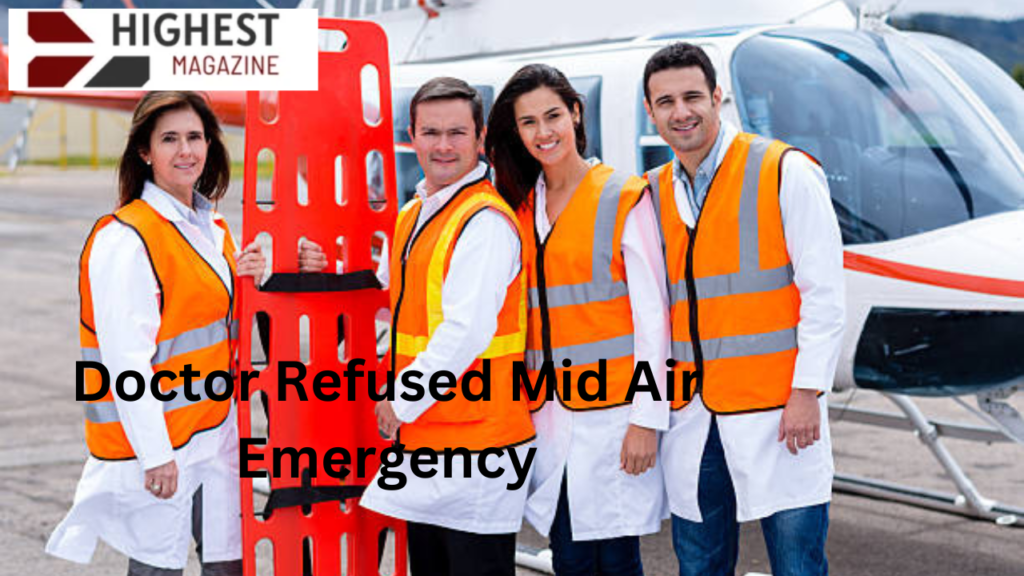Emergencies can strike at any moment, and the stakes are even higher during a flight. The confined space, lack of immediate medical resources, and the stress of being thousands of feet in the air create a unique challenge. Recently, a shocking incident unfolded when a doctor refused mid air emergency, citing his intoxication as the reason for his inability to assist. This event has sparked widespread discussion about the ethical responsibilities of medical professionals and the broader implications for passenger safety during flights.
What Happened on That Flight?
The incident occurred during a routine commercial flight. A passenger suddenly experienced severe distress, prompting the flight crew to seek medical assistance. As is customary, an announcement was made asking if any medical professionals were on board. To everyone’s surprise, a doctor did step forward but immediately stated that he could not help because he was under the influence of alcohol. This left the crew scrambling to manage the situation without the expected expertise of a qualified medical professional.
While the passenger eventually received basic first aid from the crew and other passengers, the delay in accessing proper medical care raised serious concerns. The airline’s policies, the doctor’s actions, and the overall preparedness for mid-air medical emergencies have been scrutinized.
Ethical Dilemma: Should a Doctor Always Help?
The medical profession is often viewed as a noble calling, and doctors are expected to prioritize saving lives above all else. However, this incident highlights the complexities of ethical decision-making. Should a doctor who knows they are unfit to perform due to intoxication attempt to help anyway, potentially risking the patient’s safety further? Or is it more responsible to step aside and allow others to assist?

In this case, the doctor’s refusal was based on the understanding that his impaired state could do more harm than good. While this may seem like a reasonable decision, it has sparked debates about whether medical professionals should refrain from consuming alcohol while traveling, especially when they may be called upon in an emergency.
Airlines and Emergency Preparedness
The incident also raises questions about how well airlines are equipped to handle medical emergencies. Most commercial flights carry basic medical kits and train their crew in first aid. However, these measures may not be sufficient for severe situations. Should airlines enhance their medical resources? Would having a dedicated medical professional on longer flights be a viable solution?
Some experts argue that improved cabin crew training and more advanced medical kits could make a significant difference. Others suggest leveraging technology, such as real-time consultations with ground-based medical professionals, to manage in-flight emergencies better.
The Broader Impact of This Incident
The story of the doctor refused mid air emergency has sparked a broader conversation about professional accountability, passenger safety, and the unpredictability of emergencies. It serves as a reminder that even highly trained professionals are human and can face limitations. It also underscores the importance of systems to ensure that passengers receive the best care, even in challenging circumstances.
Passengers, too, have begun to reconsider their preparedness for medical emergencies. Carrying essential medications, knowing basic first aid, and remaining calm under pressure are steps to contribute to a safer travel experience.
Lessons Learned
- Medical Professionals Must Reflect on Their Readiness: This incident highlights the need for doctors and other professionals to consider their potential role in emergencies, even when off duty. Avoiding substances that impair judgment could be a critical step.
- Airlines Should Reevaluate Policies: Airlines might need to revisit their policies on medical emergencies, including ensuring better equipment and exploring ways to incentivize medical professionals to step forward.
- Passengers Can Play a Role: While not everyone is a doctor, passengers with first aid knowledge can make a difference in an emergency. Encouraging more people to learn basic medical skills could be beneficial.

Also Read: Amazon Careers: A Comprehensive Guide to Opportunities
Climax
The case of a doctor refused mid air emergency serves as a wake-up call for individuals and institutions alike. While the doctor’s decision may have been based on self-awareness and a desire to avoid causing harm, the incident underscores the importance of being prepared for unexpected challenges. As airlines and medical professionals reassess their roles in ensuring passenger safety, it is clear that this event has left an indelible mark on how we approach in-flight emergencies. Let this be a lesson in preparedness, accountability, and the shared responsibility of everyone on board.
























